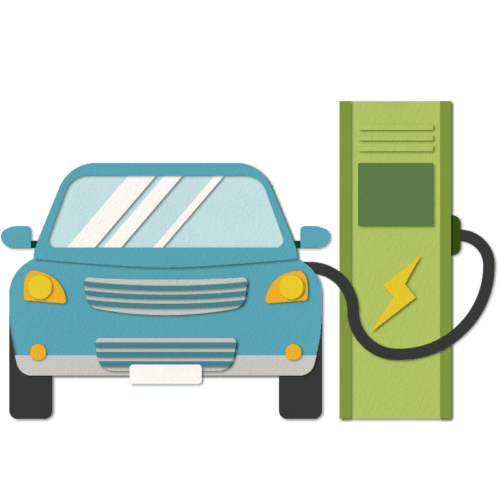To EV or Not to EV, Should That Be The Question?

Boris Johnson’s 10 Point Plan to ensure the UK becomes fully net-zero by 2050 has been broadly welcomed by green groups and charities alike. With commitments including the ban of all diesel and petrol cars by 2030 and at least 3 points focused on renewable energy (nuclear, offshore and hydrogen) this cautious praise is merited. We would encourage anyone to read the full 10 Point Plan on the excellent Edie website here:
In this, our latest blog post, we are going to focus on the promotion of Electric Vehicles (EVs) to counter the ban on diesel and petrol cars. Are they really the solution for A Better Planet or are there other alternatives that should be considered?
To EV…
There is undoubtedly a growing appetite for EVs in the UK, with just under a 7% share of the overall market. That however does not hide that year-on-year, the increase in sales is 165%. This is even more impressive given the world-wide slump in car sales due to the on-going Covid-19 pandemic. The government’s and car manufacturers’ incentives, significant improvements on ranges and a gradual increase of the essential infrastructure have all undoubtedly helped. There is little doubt these figures will continue to rocket, with many leading manufacturers including VW, Renault, Nissan and Mini producing increasingly affordable cars.
Running an EV is also unquestionably far better for the Planet than driving even the most fuel efficient petrol car. In fact, independent research and analysis carried out by the International Council on Clean Transportation (ICCT) states:
“Over a year, just one electric car on the roads can save an average 1.5 million grams of CO2. That’s the equivalent of four return flights from London to Barcelona.”
Here in the UK, “fuelling” EVs is already ever more likely to be coming from a renewable source, even before the 10 Point Plan is fully legislated. In fact, 47% of all energy came from such sources earlier this year.
Not to EV…
So far, so good. However, detractors of EVs regularly focus on the actual batteries, or specifically, what they are made from. Lithium. Lithium-ion batteries have long been found on modern-day electronics, in particular mobile devices. However, creating enough Lithium for the UK’s cars to be run on them is a different matter, in terms of scale and potential environmental impact. The problem is manufacturing Lithium. Indeed in an article published late November 2020, OVO Energy states:
“it’s the manufacture of the battery that causes more than a third of an EV’s lifecycle carbon emissions…EV batteries contain a few essential raw materials, such as nickel and cobalt – which have to be extracted from underground. Unfortunately, the process of mining these materials creates a lot of emissions. Also, batteries are often made in countries where the electricity grid is powered by fossil fuels rather than sustainable sources. Currently, around half the emissions from making a battery come from the electricity used in manufacturing and assembling them – vastly increasing an EV’s carbon footprint.”
In a damning article published this week in The Guardian, this “process of mining” and its harmful affects on the environment is further illustrated by a focus on Portugal, set to become Europe’s only realistic source of the so called “white oil.” The lush and eco-diverse lands of rural Portugal are set to be permanently scarred by Europe’s insatiable appetite for this oil. As one of the likely affected local residents morosely comments:
“so much destruction and for what? So eco-minded urbanites in Paris and Berlin can feel good about driving around in zero-emission cars.”
As double-edged swords go, EV’s is particularly sharp and potentially ruinous.
What About Hydrogen?
At the turn of the year, the global Hydrogen Council was created, with Toyota and Hyundai being two of its founding members. In an article published in Autocar, Toyota UK’s manager for Alternative Fuels comments:
“The opportunity for the UK to establish close offshore farms producing hydrogen from seawater, then export it to land by pipe or ship, is huge. With the combination of spent oil and gas fields and rigs in place, using those platforms for producing hydrogen on-site is perfectly feasible.”
The report continues:
“Green hydrogen is produced from electricity by the electrolysis of water. Once energy has been converted to hydrogen, it can be stored indefinitely, making use of depleted oil fields and salt caverns.”
We would encourage anyone to read the whole article here.
This is quite encouraging news and merits further research into its viability over the coming years. There is a potential to ultimately move away from EVs to Hydrogen fuelled cars.
In Conclusion
In an ideal world, the best way to reduce the harm cars cause the environment and our health is simply to reduce our reliance on them.
This is much easier than you would think. As covered in previous blogs, a public transport and active travel (cycling, walking, running) revolution is achievable if the Government of the day chose to divert the tens of billions of pounds it has committed to projects like HS2 and its largest ever road-building programme, to pursue these more sustainable policies. Having just left the EU, we could do a lot worse than looking to Europe for examples of what truly integrated and multi-modal transport looks like.
Though undoubtedly EVs are better than their fossil-fuelled alternatives, concerns remain about the mining of “white oil.” There needs to be far more focus on ways to try and mitigate the huge, long-term damage this will cause. Otherwise, it’s a case of solving one problem but creating another.
When it comes to the hydrogen option, again there are pros and cons to be considered. This is true for many of the environmental challenges facing us today. The truth is there is no ‘one answer’ to the problems we are creating. Rather, we need to seek and pursue a wide range of different policies aimed at reducing the damaging our species is causing on this planet… which all starts with a genuine appetite to do so.
Realistically, we must accept that cars are here to stay for the foreseeable future – indeed they’re vital to so many who live in more rural, less connected locations. The question is; what is the best way of reducing the damage they cause?
We will continue to report and blog about this crucial topic in the coming months.
Working with us, for a better planet
If you are equally as passionate in promoting public transport and sustainable methods of transport but are unsure as to how to successfully make your voices heard. Don’t hesitate to get in touch.
We look forward to working alongside you on this or any other similar campaign. Collectively we will create A Better Planet.
Please do follow us across our social media channels: Twitter, Instagram, Facebook and LinkedIn.



